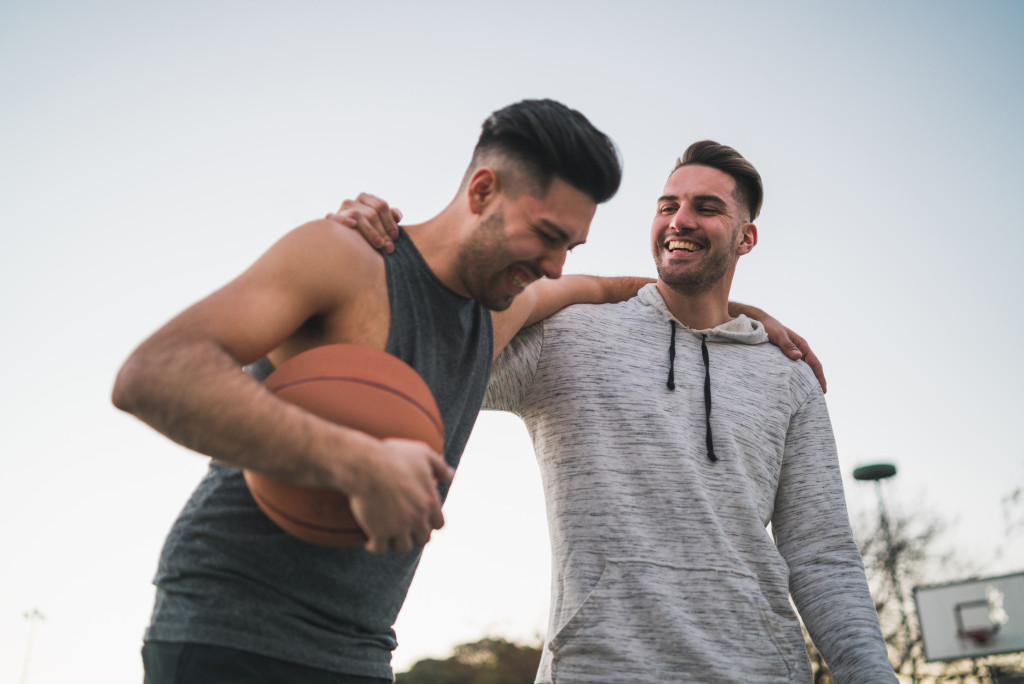Throughout the years, men have been thought to be the epitome of strength. Different cultures worldwide have built a social construct that males are tough, emotionless, and impenetrable. But just like any other thing in this world, cultures are also evolving.
However, some parts of the world still uphold these standards. They view any emotion or vulnerability as a sign of weakness. This is one of the many reasons why body issues among males are often not spoken about as much as they should be.
Body issues do not discriminate. It does not matter what somebody looks like on the outside because anyone can be struggling with their self-image. That’s why if you have a friend dealing with body issues, you must know how to approach the situation. Here are some ways you can help your best buddy who is dealing with body issues:
1. Provide resources for professional help
One of the most crucial things you can do for your friend is to provide them with resources for professional help. This includes therapy, counseling, and support groups.
Extreme body issues can lead to other unhealthy habits such as eating disorders and self-harm. If you see that your friend is starting to exhibit any of these behaviors, you must seek professional help right away. Bulimia or anorexia therapists are some people you can introduce your friend to if they’re dealing with such problems.
Mental health professionals are also accessible online. Your friend can take advantage of several hotlines and online chats if they feel like they need someone to talk to outside of their inner circle.
2. Listen without judgment
It’s important to consider that weakness can be a sensitive topic for some men. If your friend is dealing with body issues, he may not be comfortable talking about it openly. The best thing you can do is to listen to them without judgment and let them know that you’re there for them.
You can start by asking general questions about how they’re doing and if there’s anything on their mind. If they seem receptive, you can then ask more specific questions about how they feel about their bodies.
Be relatable and open up about your insecurities if you think that would make your friend feel seen and heard. The goal is to make them feel like they’re not alone in this and that you understand what they’re going through.

3. Encourage positive self-talk
From hair problems to physique insecurities, different men have different body issues. But one thing remains the same — the way they talk to themselves about their bodies greatly affects how they see and feel about themselves.
As a friend, you can help by encouraging positive self-talk. This means avoiding phrases such as “you’re too skinny” or “you’re not good enough.” Instead, use phrases that will help build your friend’s self-esteem, such as compliments about their achievements or qualities you admire.
You can also help by redirecting their attention to other things they’re good at. This way, they’ll start to see themselves in a more positive light, and their body issues could become their secondary concern.
4. Promote a healthy lifestyle
Having a healthy lifestyle is not just about having a fit body. It’s also about having a healthy mind. Body issues can affect somebody’s mental health, so it’s important to encourage your friend to live a lifestyle that promotes both physical and mental wellness.
Studies have shown that men are more likely to suffer from chronic illnesses than women. This is partly because men are less likely to visit the doctor regularly and more likely to engage in risky behaviors.
As a friend, you can help your friend by encouraging him to live a healthier lifestyle. This includes eating healthy, exercising regularly, and getting enough sleep. Ask them to join you in your morning run or be your gym buddy. You can encourage them to eat healthier meals and get enough sleep if they’re not into fitness.
5. Help them find their own identity outside of their appearance
In a society that places so much emphasis on looks, it’s easy for someone to get caught up in their physical appearance. This can be especially true for men constantly bombarded with images of the “ideal” male body.
One way you can help your friend is by helping them find their identity outside of their appearance. This means encouraging them to pursue their passions and engage in interesting activities.
Their identity is what makes them unique and special. Most of these qualities are on the inside and have nothing to do with their physical appearance. Help your friends tap into these qualities so they can start to see themselves in a different light.
If you have a friend who is dealing with body issues, the best thing you can do is to be the friend that they need. Be someone they can rely on and offer your support in whatever way you can. Remember, be patient, understanding, and most importantly, be there for them.

